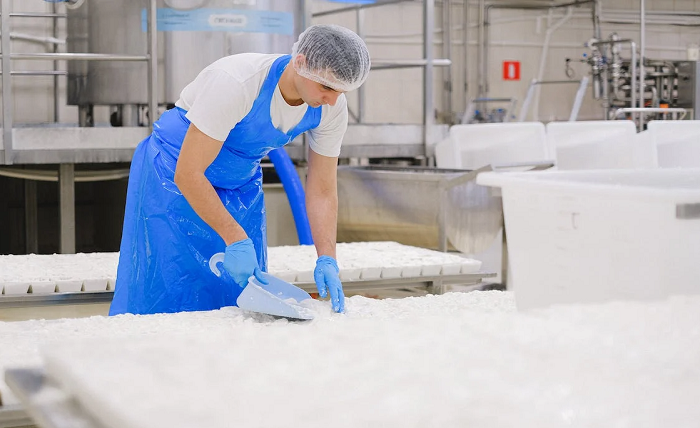Benefits of Using FIBC Bulk Bags in the Food Industry

Introduction
If you’re in the food industry, you’re probably familiar with bulk bags. Bulk bags are a great way to store and ship food products, but many types of bulk bags are still available on the market. One type of bulk bag that’s growing in popularity is FIBC bulk bags, which stand for “flexible intermediate bulk container.” These sacks are more durable than other types of plastic sacking and can last up to 10 times longer than other types of plastic sacking materials like woven polypropylene or polyethylene film. If you’ve been considering adopting FIBC bulk bags into your business operations but aren’t sure why it would be worth it, read on for some added benefits about why using this type of packaging could benefit your company:
FIBC bulk bags are much more durable than other bulk bags.
An FIBC bulk bag is a much more durable option than a traditional bulk bag. The material used to make them is more robust, so it can withstand more pressure and weight. They’re also made of thicker material than other types of bulk bags, which makes them less likely to tear or puncture.
FIBC bulk bags are much more resistant to punctures.
FIBC bulk bags are much more resistant to punctures. The thicker material of these bags makes them more resistant to puncture, which is a major advantage when you’re transporting food and other items that might be prone to punctures. Not only are they less likely to tear or burst open during transport, but they can also be built with waterproof coatings on the outside of the bag if needed. This helps keep your products dry and fresh throughout their journey from the origin point to the destination point!
The food industry has a lot of waste, but FIBC bulk bags help reduce this waste.
One of the biggest challenges in the food industry is waste. Food production creates a lot of waste, and it’s important to find ways to reduce how much gets thrown out. One way you can do this is by using FIBC bulk bags instead of other types of bulk bags.
FIBCs are much more durable than other types of bulk bags because they’re made from reinforced polyethylene (RPE). They’re also resistant to punctures and tears, which means that you won’t have to worry about them breaking open during shipping if something sharp hits them or someone drops something heavy on them!
They’re easier to store and transport than other types of bulk bags.
FIBC bulk bags are easier to store and transport than other types of bulk bags. They’re lighter in weight, which means that you can move them more easily when you need to load them into trucks or onto pallets. In addition, FIBCs are durable; because they’re made from a woven fabric rather than plastic (like many other types of bulk bags), they won’t tear easily if they hit something sharp during the loading process. This makes transporting your products safer for everyone involved and reduces waste along the way!
Finally, using FIBCs instead of traditional plastic or paper sacks means less waste overall–and that’s good news for both our planet and its inhabitants
There are many benefits to using FIBC bulk bags in the food industry.
There are many benefits to using FIBC bulk bags in the food industry.
- They are much more durable than other types of bulk bags, which means they will last longer and you can use them for a longer time. This is especially important if you’re working with heavy-duty materials and need a strong bag that can withstand these elements.
- FIBCs are also resistant to punctures, which means less waste from torn or damaged bags over time as well as fewer spills when transporting products through your warehouse or facility.
Conclusion
We hope that this article has given you a better understanding of the benefits of using FIBC bulk bags in the food industry. They’re much more durable than other types of bulk bags, they reduce waste and make it easier to transport food products from one place to another.





